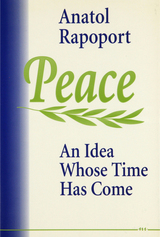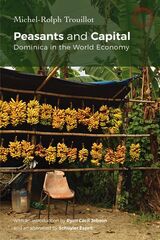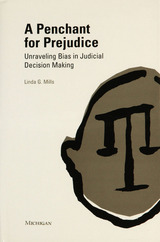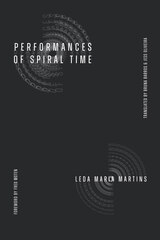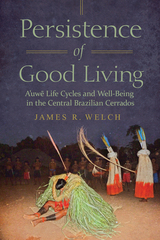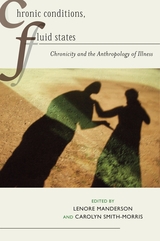
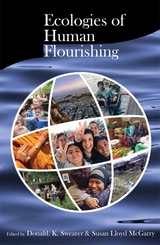
In this volume, prominent Buddhist scholar Donald Swearer posits that the future requires a radical shift toward living in recognition of the interdependence of all life forms and the consequent ethic of communality and a life style of moderation or “enoughness” that flows from that recognition, which he calls “an ecology of human flourishing.” Swearer has assembled world-class thinkers to explore and imagine several dimensions of an ecology of human flourishing: economic, sociological, religious, ethical, environmental, historical, literary; how notions of human flourishing, quality of life, and common good have been constructed; and, in the contemporary world, how they are illuminated or are challenged by issues of distributive justice, poverty and economic inequality, global health, and environmental sustainability.
With contributors ranging from ecoactivist Bill McKibben and medical anthropologist Arthur Kleinman, to transformative theologian Sallie McFague and Malaysian critic of global injustice Chandra Muzzafar, this book expresses ethical and religious aspirations to remake the world in the midst of the contradictions, injustices, and problems of our daily lives and today's global economic and climate crises.

Whether considering how American drug companies seek to create a market for antidepressants in Japan, how Brazil has created a model HIV/AIDS prevention and treatment program, or how the urban poor in Delhi understand and access healthcare, these essays illuminate the roles of corporations, governments, NGOs, and individuals in relation to global pharmaceuticals. Some essays show how individual and communal identities are affected by the marketing and availability of medications. Among these are an exploration of how the pharmaceutical industry shapes popular and expert understandings of mental illness in North America and Great Britain. There is also an examination of the agonizing choices facing Ugandan families trying to finance AIDS treatment. Several essays explore the inner workings of the emerging international pharmaceutical regime. One looks at the expanding quest for clinical research subjects; another at the entwining of science and business interests in the Argentine market for psychotropic medications. By bringing the moral calculations involved in the production and distribution of pharmaceuticals into stark relief, this collection charts urgent new territory for social scientific research.
Contributors. Kalman Applbaum, João Biehl, Ranendra K. Das, Veena Das, David Healy, Arthur Kleinman, Betty Kyaddondo, Andrew Lakoff, Anne Lovell, Lotte Meinert, Adriana Petryna, Michael A. Whyte, Susan Reynolds Whyte
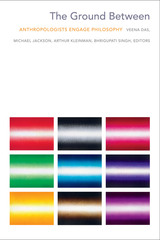
Contributors. João Biehl, Steven C. Caton, Vincent Crapanzano, Veena Das, Didier Fassin, Michael M. J. Fischer, Ghassan Hage, Clara Han, Michael Jackson, Arthur Kleinman, Michael Puett, Bhrigupati Singh

Four years in the making, this entirely revised edition of a classic text provides a lucid and erudite review of the state of psychiatry today. Since the publication of the last edition in 1988, remarkable advances have been made in laboratory and clinical psychiatric research; the fourth edition of the Diagnostic and Statistical Manual of Mental Disorders (DSM-IV) has been published; managed care has radically altered the provision of all medical care; and the profession of psychiatry has come to a sophisticated new understanding of the interplay between psychiatric knowledge and issues in the larger society.
All these changes are reflected in the new text. Of particular interest are the masterful and lucid reviews of current knowledge in the neurobiology of mental disorders, in the section on brain and behavior. The section on psychopathology clarifies newly emerging diagnostic categories and offers new insight into addictions, anxiety disorders, and disorders of cognition.
Like its predecessors, The Harvard Guide To Psychiatry focuses throughout on the relationship between the physician and the patient. Its unspoken motto is that the art of psychiatry is as important as the science. For this recognition of what is relevant clinically as well as technically, this book will be an essential reference and support for both the new and the experienced psychiatrist.
This new edition includes up-to-date discussions of:DSM-IVManaged careImprovements in neuroimagingThe increased use of psychoactive drugsRecent advances in molecular biologyResearch on the biology of schizophrenia, depression, anxiety, and addictive disorders

Health and Social Change in International Perspective brings together an unprecedented interdisciplinary series of approaches to understanding the social dimensions of health change around the world. The seventeen contributors—demographers, epidemiologists, economists, anthropologists, public health scientists—are among the intellectual leaders of efforts to respond to the world’s health challenges.
Moving beyond the limits of established theories about demographic and epidemiologic transition, this book offers broad explorations of the social causes and consequences of health change. Consensus is reached on some matters, but critical debate and controversy predominate in others. The authors address several critical questions: What are the forms and structures of health transitions? Do these changes assume universally consistent patterns, or are health transitions particularistic, reflecting space, time, and community? What are the methodological issues in definition and measurement? And how can understanding improve health policy, interventions, and the research agenda?
Exploring new frontiers of a vital topic, Health and Social Change in International Perspective is an invaluable resource for social and health scientists working to understand world health change.
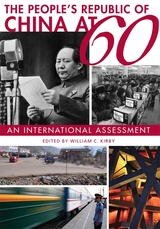
In 2009, to mark the sixtieth anniversary of the People’s Republic of China, the Fairbank Center for Chinese Studies convened a major conference to discuss the health and longevity of China’s ruling system and to consider a fundamental question: After three decades of internal strife and turmoil, followed by an era of reform, entrepreneurialism, and internationalization, is the PRC here for the dynastic long haul?
Bringing together scholars and students of China from around the world, the gathering witnessed an energetic exchange of views on four interrelated themes: polities, social transformations, wealth and well-being, and culture, belief, and practice. Edited and expanded from the original conference papers, the wide-ranging essays in this bilingual volume remain true to the conference’s aim: to promote open discussion of the past, present, and future of the People’s Republic of China.

In our globalized world, differing conceptions of human nature and human values raise questions as to whether universal and partisan claims and perspectives can be reconciled, whether interreligious and intercultural conversations can help build human community, and whether a pluralistic ethos can transcend uncompromising notions as to what is true, good, and just.
In this volume, world-class scholars from religious studies, the humanities, and the social sciences explore what it means to be human through a multiplicity of lives in time and place as different as fourth-century BCE China and the world of an Alzheimer’s patient today. Refusing the binary, these essays go beyond description to theories of aging and acceptance, ethics in caregiving, and the role of ritual in healing the inevitable divide between the human and the ideal.
READERS
Browse our collection.
PUBLISHERS
See BiblioVault's publisher services.
STUDENT SERVICES
Files for college accessibility offices.
UChicago Accessibility Resources
home | accessibility | search | about | contact us
BiblioVault ® 2001 - 2025
The University of Chicago Press


